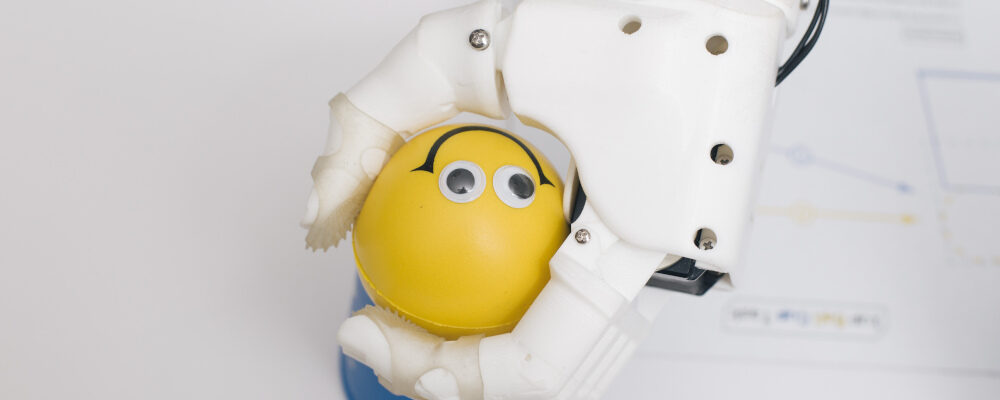As artificial intelligence (AI) becomes increasingly integrated into our society, we’ve seen a surge of criticism and fear-mongering around the technology. A few weeks ago, a group spearheaded by the Future of Life Institute, and supported by big names like Elon Musk, Steve Wozniak, and over 2,000 other signatories, penned an open letter calling for a six-month pause in the development of AI technologies. Similar letters were published in 2015 and 2018, signed by thousands of AI and robotics researchers. All three letters warn of the potential dangers of AI and call for caution in its development, and most recently a mandated pause.
Now, every newspaper and online publication is filled with doomsayers singing from the same hymn sheet. A recent Substack post by Diane Francis particularly caught my attention.
While it’s true that there are certainly risks associated with AI, it’s important to recognize that all of these critics are overweighing these risks while completely ignoring the significant benefits that AI can provide to humanity.
Although it would be futile to try and predict the potential of AI and how industries will be reshaped in the decades to come, you don’t need much imagination to foresee its potential in industries and fields that are in desperate need of innovation.
From medicine and health care to energy efficiency and abundance, AI can help solve some of the world’s most complex problems. It can aid in the discovery of new drugs, improve surgical precision, and enhance patient care. In energy, AI can optimize systems to reduce waste and increase efficiency, while also unlocking new ways of generating and storing energy. And in fields like transportation and logistics, AI can help reduce traffic, increase safety, and streamline supply chains.
All of these benefits without possibly conceiving of the industries it will help create. Rewind 25 years and try to imagine the industries made possible by the modern internet. A similar economic shift is coming, and humanity will stand to greatly benefit if we take full advantage.
Despite some of these clear benefits—and some of the undefined creative opportunities—many observers and commentators jump straight to the doom and gloom risks of AI, completely overlooking the obvious potential for meaningful life-improving innovation. For every “evil person” who might use AI for harm, there are 100,000 good people looking to use it for good. It’s also worth noting that any risks posed by AI can ironically be most effectively mitigated by using AI itself.
Take the often-used example of a DNA sequence of a deadly disease, created by AI, and sent to a lab for production to infect humanity. In this dystopian scenario, how better to counter that risk than with powerful AI tools for detection, prevention, and cure? In order for those positive tools to be built and available to us, we need to allow the responsible use of AI in fields like medicine and immunology today.
The recent global COVID-19 pandemic is a good example of the potential benefits AI could have represented. While the virus may have originated naturally, powerful AI tools (if they existed at the time) could have been used to better understand the virus, predict its possible evolutionary paths, and identify effective treatments and cures faster. As we continue to face similar global crises in the future, we’ll need to rely on AI to help us navigate and overcome them.

All this said, I won’t ignore the risks associated with the development and use of AI. Critics have pointed to job displacement, privacy concerns, and the potential for AI to be weaponized by governments or malicious actors. These risks are real, but they can be effectively managed and mitigated through responsible development, ethical guidelines, and transparency. We need to establish clear ethical standards for the development and use of AI, but this should be done in a way that emphasizes human prosperity and flourishing, rather than stifling innovation. In short, any effort that calls on government intervention in this field, rather than industry-led standards, should be looked at with skepticism.
It’s important that we don’t let fear and pessimism prevent us from realizing the full potential of AI. Governments and politicians should be cautious not to act too quickly and reactively to fears on the topic. Instead, they should be looking inward to see where AI can be used to augment their own capabilities in delivering services to their citizens. Countries that rush to constrain or ban AI development will ultimately lose out in the long-term cycle of innovation. We’ve already seen this trend starting with some notable European countries moving to ban AI tools like ChatGPT.
Looking inward to the opportunity this presents for Canada, we need to be extremely thoughtful in how we approach this topic as a country this decade. Canada already stands out as a known hub for AI research and education and should have a unique opportunity to play a significant role in shaping the future of AI. If Canada seizes this once-in-a-generation opportunity, it could fundamentally improve the prosperity of our country. Particularly while Canada suffers from stagnating economic growth, we’ll need a new wave of productivity to get us out of the rut we’ve been in for some time.
AI might be the catalyst of Canadian economic growth that we need.




